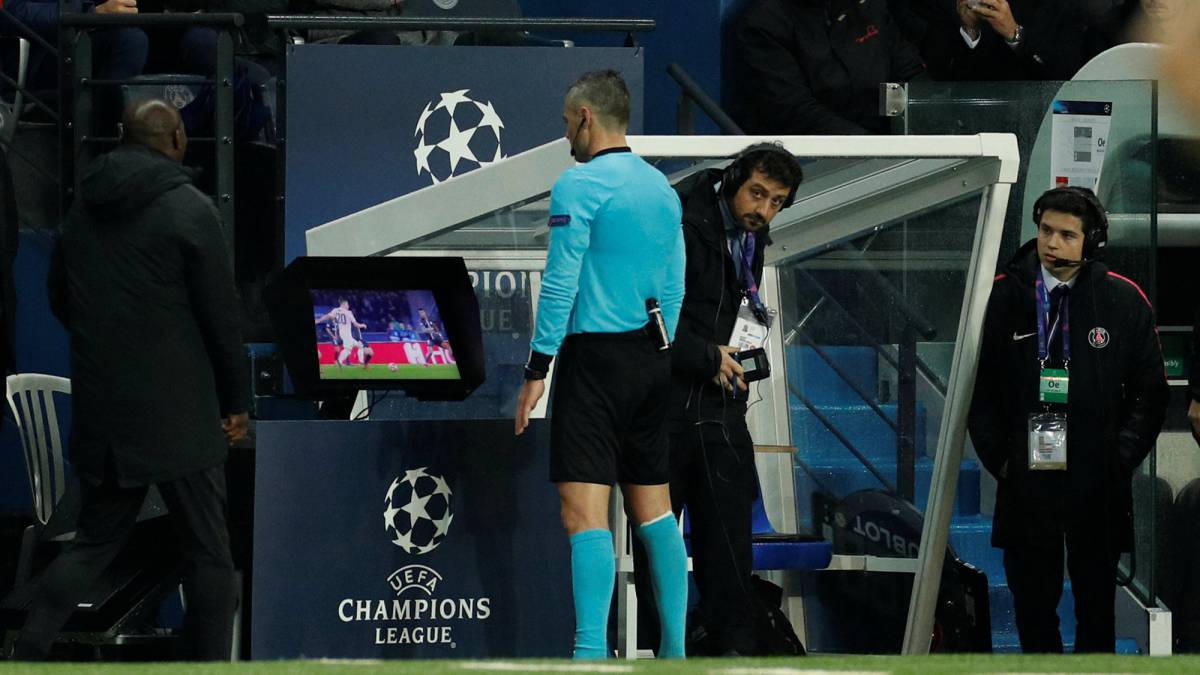Tuesday’s Champions League matches were exciting affairs, with advancement to the quarterfinals hanging in the balance into the final minutes. But players and fans are more likely to remember them for the fact that VAR played a decisive role in determining the winners.

VAR – the Video Assistant Referee – is being used in Champions League play for the first time this season. And just as in the World Cup and many domestic leagues around the world, decisions reached after video review have proven to be controversial at times.
VAR Aids Manchester United Comeback
Perhaps the most notable decision to come under the microscope this week came in the dying minutes of Manchester United’s trip to Paris Saint-Germain. The French side took a 2-0 lead into the second leg, but United was surprisingly up 2-1 in the second half, giving PSG only a 3-2 lead on aggregate. Because away goals are used as a tiebreaker, a late United goal would send the English side through to the quarterfinals.
With the game nearing stoppage time, Diogo Dalot fired a shot towards the net, where it struck PSG defender Presnel Kimpembe. The referee initially signaled for a corner kick, but VAR asked him to take another look at the play, as the ball had come of the leaping Kimpembe’s arm after he turned his back to block the shot.
After several minutes of delay, referee Damir Skomina called for the penalty. Marcus Rashford converted, and Man United had completed an improbable comeback to eliminate PSG.
Many fans blasted the decision, as did injured PSG striker Neymar after the game.
“This is a disgrace,†Neymar wrote in Portuguese on his Instagram account. “They put four guys there who don’t understand football to look at a slow motion replay…it’s just not possible!!!â€
Roma President: ‘I Give Up’
Tuesday’s other match also saw VAR play an outsized role in the outcome. Roma led 2-1 heading into the second leg of its match with Porto, but the Portuguese side won 2-1 at home to leave things even at three goals apiece. That required extra time, and with just a few minutes remaining, Port’s Fernando was taken down by Alessandro Florenzi in the box.
VAR reviewed the play, and ultimately awarded a penalty to Fernando in a situation that felt like it could go either way. Alex Telles converted the kick to give Porto the late lead.
There was still more VAR drama, though, as Roma’s Patrik Schick went down in the box while being defended by Moussa Marega. VAR initially looked at the play, but didn’t ultimately call for a review on the pitch, determining that Marega didn’t actually contact the heels of Schick.
Unsurprisingly, the combination of those two VAR decisions left Roma officials angry in the aftermath.
“Last year we asked for VAR in the Champions League because we got screwed in the semifinal, and tonight, they’ve got VAR and we still get robbed,†Roma president James Pallotta said after the match. “I’m tired of this crap. I give up.â€
Defenders of VAR have pointed out that by the laws of the game, VAR likely got all three of these decisions correct. However, almost everyone acknowledges that the long delays at the tail end of matches disrupted the flow of the game in what should have been the most tense and exciting moments of play.
With the Champions League field narrowing, Manchester City is now a 9/4 favorite to win the competition at William Hill, ahead of Barcelona (7/2). Manchester United comes in as a 10/1 pick, while Porto is a 50/1 longshot.











